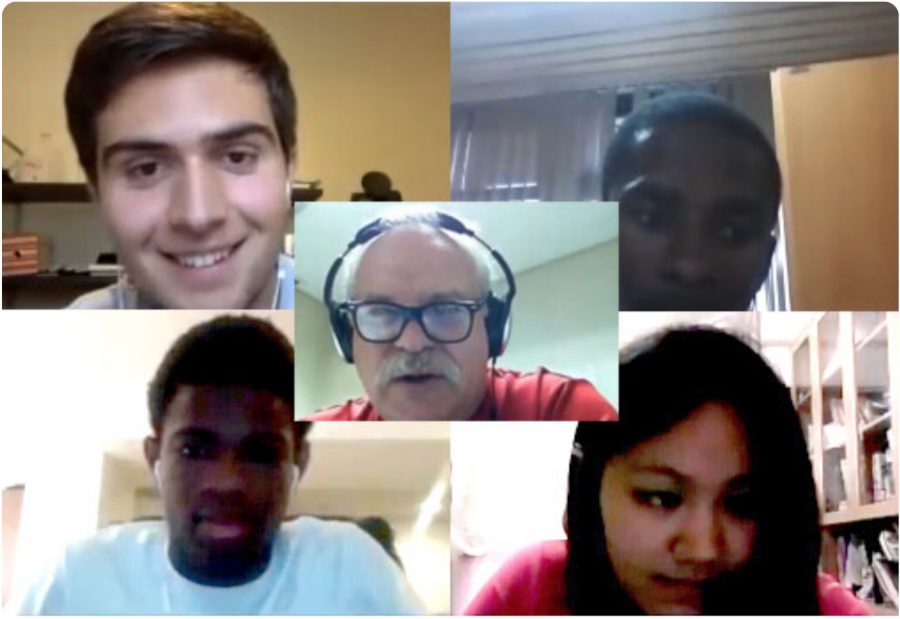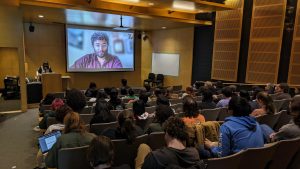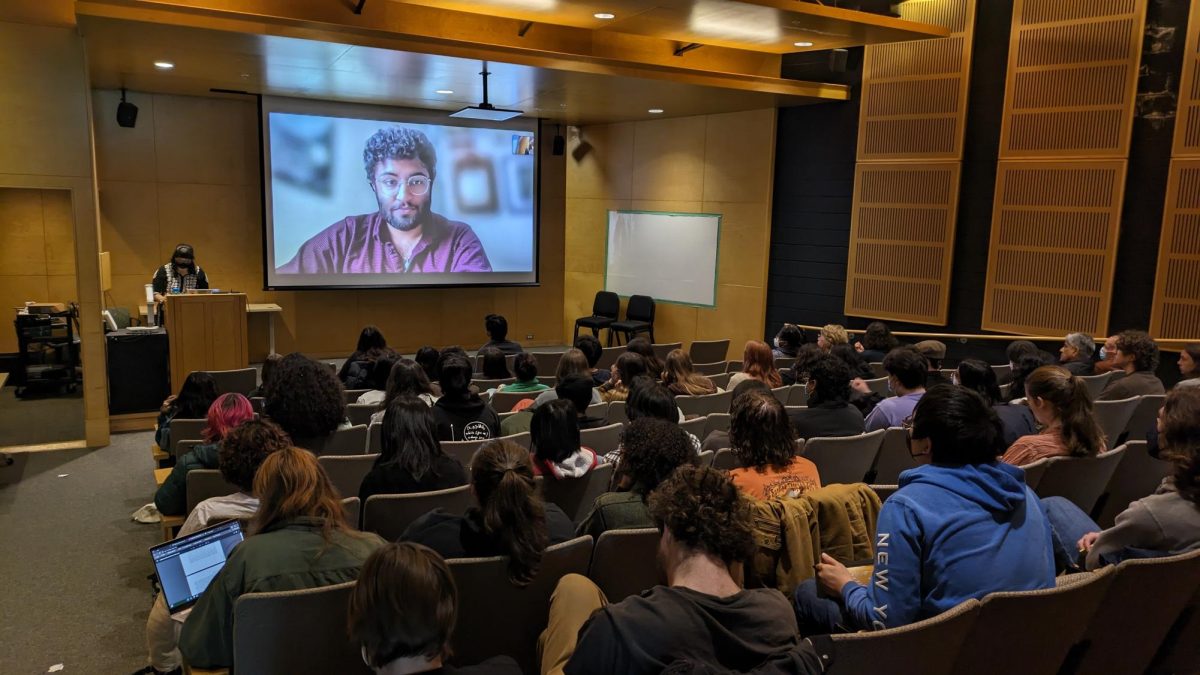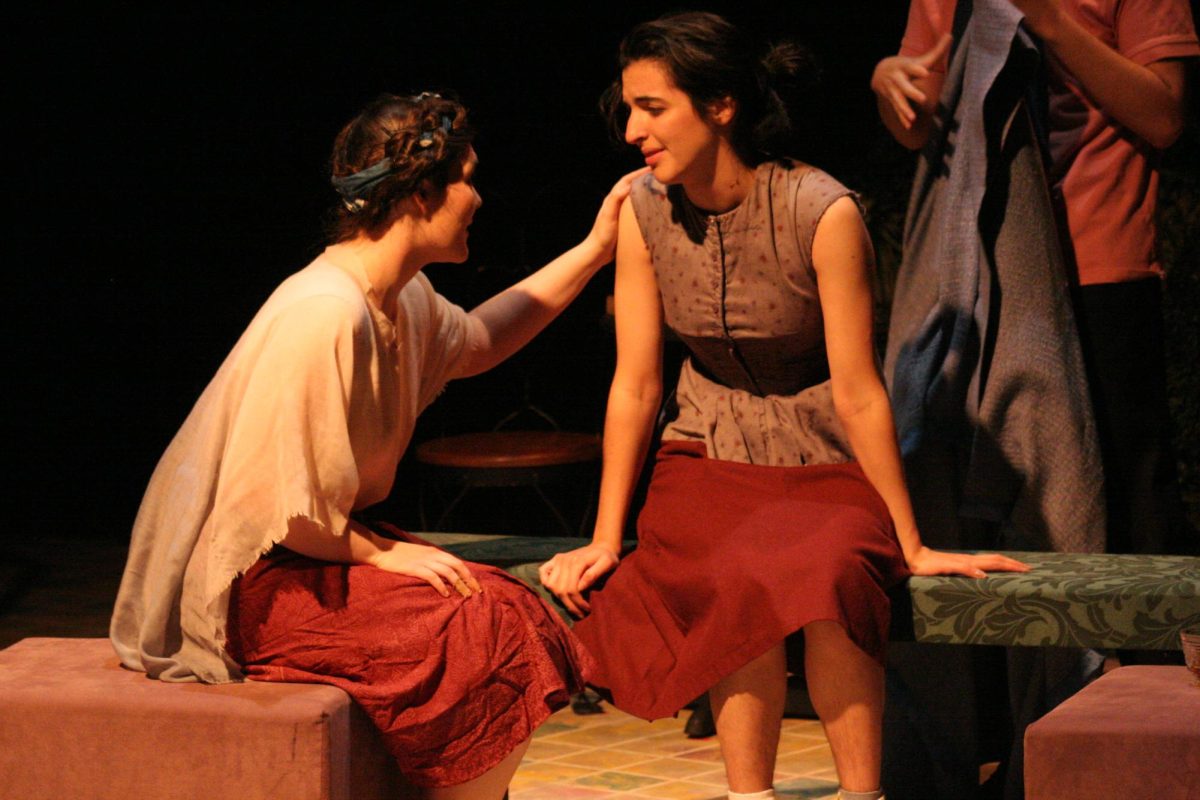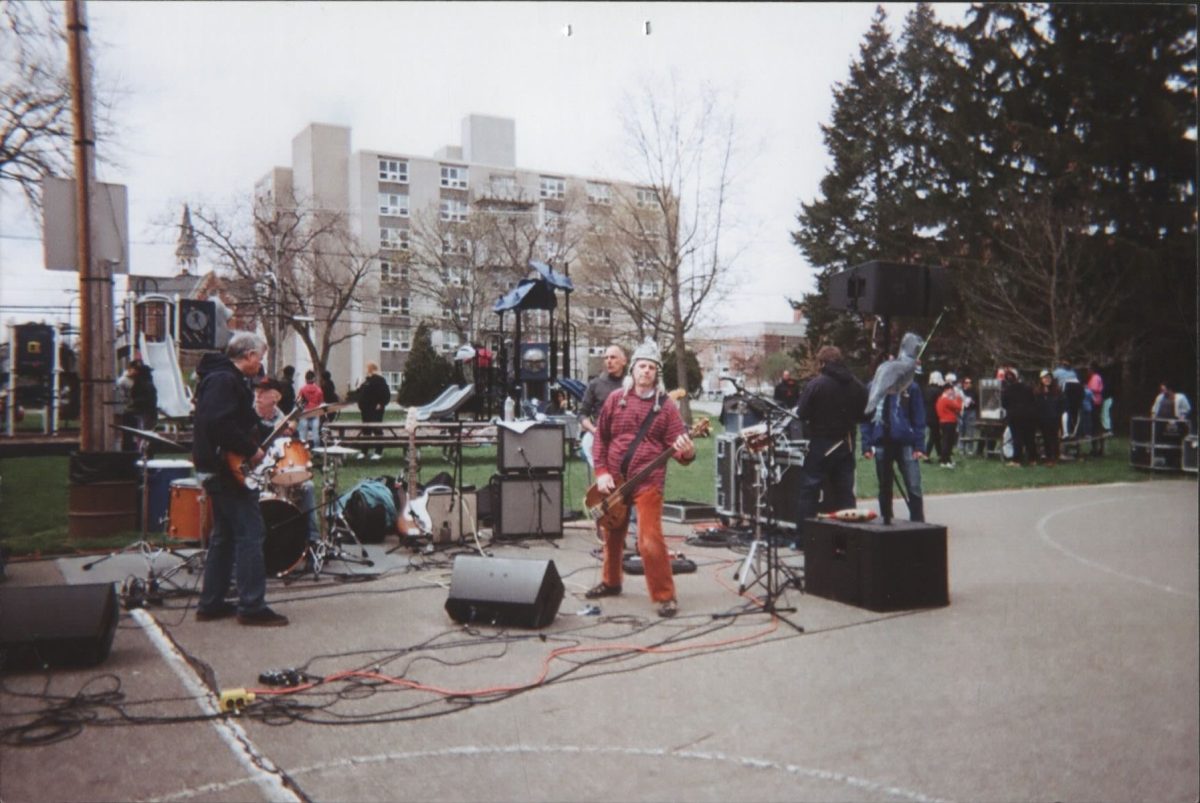College Goes Global with Online Courses
Photo Courtesy of Pioneer Academics
A screenshot of the Pioneer Academics online classes software. The College will participate in the program starting summer 2017.
November 4, 2016
The College is going digital and entering the world of online education as part of a bid to raise revenue, increase research opportunities for faculty and heighten international exposure.
The College will partner with Pioneer Academics to provide online college-level educational programs and research mentor partnerships with professors for high school students.
rough Pioneer, a start-up that aims to expand educational accessibility with technology, students taking these online courses will be able to access Oberlin’s online library resources, receive college credits and have an opportunity to work with college professors as they pursue research projects.
Dean of the College of Arts and Sciences Timothy Elgren, who is heading the effort for this online program, said he is enthusiastic about its benefits after participating in Pioneer’s pilot research program as a mentor for three students while on faculty at Hamilton College.
Since Elgren came to Oberlin three years ago, he has continued his involvement with Pioneer by acting as a voluntary advisor for the program and working to have Oberlin faculty mentor high school students starting next summer.
“This is something that really Tim brought to Oberlin. He had been involved with [it] at Hamilton,” President Marvin Krislov said. “I thought it was a great opportunity both to give us an opportunity to meet students who might be interested in Oberlin eventually, and it’s also an opportunity for if faculty and staff want to participate in the educational process. And I met the people — they seem really committed to doing quality work.”
Krislov also noted that the program will help the College raise revenue in a time of tight budgets.
“One of the things that we’re trying to do as part of the Strategic Plan … is think of alternative ways to make money,” Krislov said. “And so, for instance, the hotel is going to provide some additional business, we hope. And that so far seems to be working. It’s a modest program, but [online classes] can provide alternative revenue, too.”
According to Elgren, the College has already earned $120,000 from the contract with Pioneer, which will pay the College a fee for every student in its program.
Elgren also spoke about the two-way benefits of the program, which in his view will make the College more visible in the world and expose high school students to college-level academic experiences.
“For Oberlin to partner in this way, we do two things,” Elgren said. “We get incredible national and international global exposure to the resources we have available as a higher education institution, but also exposure to our vision of how to reach out to the world, and using this platform and enabling a platform that allows students from around the world to think about how to study at the highest level and how Oberlin can help in this pursuit.”
Pioneer has drawn faculty members from 26 other prominent colleges and universities, including Brown University, Pomona College and Vassar College. It has also expanded on the international front, granting research access to students from countries including China, South Korea, Brazil, Russia, Rwanda and India, among others. Although Pioneer has worked with faculty mentors and students from various places already, Oberlin is hoping to have its faculty become involved by next summer, according to Elgren.
However, as Pioneer functions in a network of partnerships with other universities and colleges, participating in Pioneer will not be required for Oberlin faculty members.
“I don’t anticipate that this will have any
negative or positive implications … as the Pioneer program will not add to or detract from faculty’s regular teaching responsibilities,” professor of Comparative American Studies and department chair Wendy Kozol wrote in an email to the Review. “Moreover, while Oberlin College will function in an administrative capacity, faculty from colleges around the country, not just Oberlin can apply; therefore the College is under no obligation to have any of its faculty commit to teaching in this program.”
The program would be a one-on-one to one- on-four 10-week research experience for students who apply through Pioneer, conducted through mentored video conferencing online. Pioneer’s programs range in cost from $0–6355 per student, but the company has granted need-based financial aid to 20 percent of participating students in the past.
Elgren said that in order for people to access Oberlin’s library and its research tools, they would need to be Oberlin students. As a result, Oberlin is offering half of a college credit to students participating in research through Pioneer.
Elgren further explained the benefits for faculty members, as Pioneer offers research grants to professors who participate as mentors. He said that this could be important in the humanities, arts and social science fields, which tend to have fewer grants available.
As a faculty mentor at Hamilton, Elgren said that he was able to help his students with their college applications. After the program ends, the faculty mentor writes an official evaluation letter, assessing the overall work of the students and their college readiness. His students ended up attending Princeton, Carnegie Mellon and Claremont McKenna.


